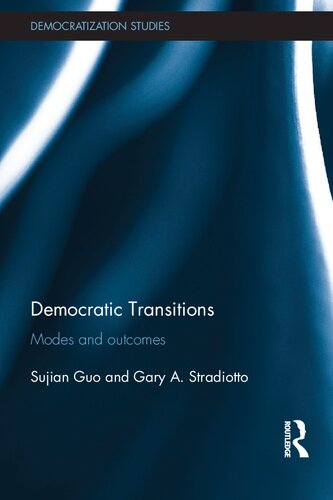

Most ebook files are in PDF format, so you can easily read them using various software such as Foxit Reader or directly on the Google Chrome browser.
Some ebook files are released by publishers in other formats such as .awz, .mobi, .epub, .fb2, etc. You may need to install specific software to read these formats on mobile/PC, such as Calibre.
Please read the tutorial at this link. https://ebooknice.com/page/post?id=faq
We offer FREE conversion to the popular formats you request; however, this may take some time. Therefore, right after payment, please email us, and we will try to provide the service as quickly as possible.
For some exceptional file formats or broken links (if any), please refrain from opening any disputes. Instead, email us first, and we will try to assist within a maximum of 6 hours.
EbookNice Team

Status:
Available4.8
33 reviewsDemocratic transitions have occurred in many countries in various regions across the globe, such as Southern Europe, Latin America, Africa, East and Southeast Asia, Eastern Europe and the Middle East, and these nations have undergone simuntaneously political, economic and social transformations. Yet, the patterns and characteristics of transitions have varied significantly, and different modes of transition have resulted in different outcomes.
This book offers cross-national comparisons of democratic transition since the turn of the twentieth century and asks what makes democracies succeed or fail. In doing so it explores the influence the mode of transition has on the longevity or durability of the democracy, by theoretically examining and quantitatively testing this relationship. The authors argue that the mode of transition directly impacts the success and failure of democracy, and suggest that cooperative transitions, where opposition groups work together with incumbent elites to peacefully transition the state, result in democracies that last longer and are associated with higher measures of democratic quality.
Based on a cross-national dataset of all democratic transitioning states since 1900, this book will be of great interest to students and scholars of international politics, comparative politics and democracy, and democratization studies.